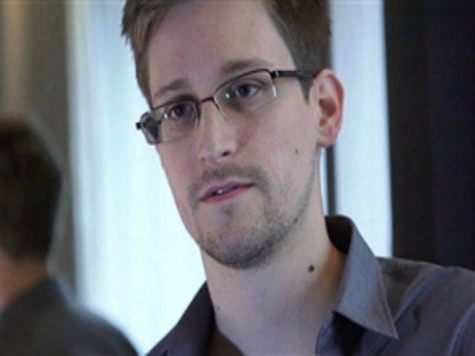In April 2014, Argentina’s far-left President Cristina Fernández de Kirchner became the first head of state to engage in a one-on-one meeting with Edward Snowden, a former employee of the American National Security Agency, whose theft of prodigious amounts of classified information substantially hindered the Western War on Terror.
The Buenos Aires Herald revealed on Thursday that Fernández de Kirchner requested a meeting with Snowden while visiting Moscow in 2014, amid meetings with longtime ally President Vladimir Putin. Anthony Romero, executive director of the American Civil Liberties Union (ACLU) who has been identified by some outlets as Snowden’s lawyer, confirmed the meeting to the Argentine outlet, and appeared to express some confusion regarding why the meeting was not previously public knowledge.
“Snowden met with President Fernández de Kirchner. They talked for more than an hour. I don’t know why she has not made public comments about it,” Romero, who is currently in Buenos Aires, told the Herald. He also confirmed she is the first head of state to have had a meeting with Snowden. He added that Fernández de Kirchner “made a good impression on [Snowden]” and that he had no reason that could explain why she had not mentioned the meeting upon returning from the trip to Russia.
Romero went on to explain that the Russian government had made the meeting possible at her request and praised Fernández de Kirchner for her interest: “if other heads of state showed the leadership of President Kirchner, there would be more of an interest in protecting the privacy of people.” He took the opportunity to deride Germany’s Angela Merkel for not doing the same.
Argentine outlets are speculating that the two discussed the Falkland Islands War and Argentina’s continued insistence that the islands, sparsely inhabited by mostly ethnic British, belongs to them. Their meeting occurred days after it was revealed that the UK was conducting heavy surveillance on the Argentine government.
Critics have begun questioning the nature of the meeting and the choice to keep it a secret. Speaking with two former high-ranking diplomats in the country, Argentine outlet Infobae found the two in agreement that keeping the meeting secret generates intrigue around it and speculation that something about it deserved to be kept secret. Former diplomat Roberto García Moritán described the meeting as “worthy of comment” and noted he was surprised it happened at all, “knowing that the U.S. had declared [the Snowden affair] a criminal matter.” Andrés Cisneros, who held the same post as García Moritán, added, “If the government of any country would consider it necessary to meet with Snowden, they should do so with an open agenda, explaining their motives and justifying them as necessary for the national interests of the country.”
Snowden resurfaced in the news this week with a New York Times column from Moscow, in which he celebrates his own leaks as having made an impact. “We are witnessing the emergence of a post-terror generation, one that rejects a worldview defined by a singular tragedy. For the first time since the attacks of Sept. 11, 2001, we see the outline of a politics that turns away from reaction and fear in favor of resilience and reason,” he writes, praising himself for having precipitated this.
Fernández de Kirchner, meanwhile, is in Rome preparing to meet with Pope Francis. The government has not yet made any public statements regarding the revelation of this meeting with Snowden.

COMMENTS
Please let us know if you're having issues with commenting.